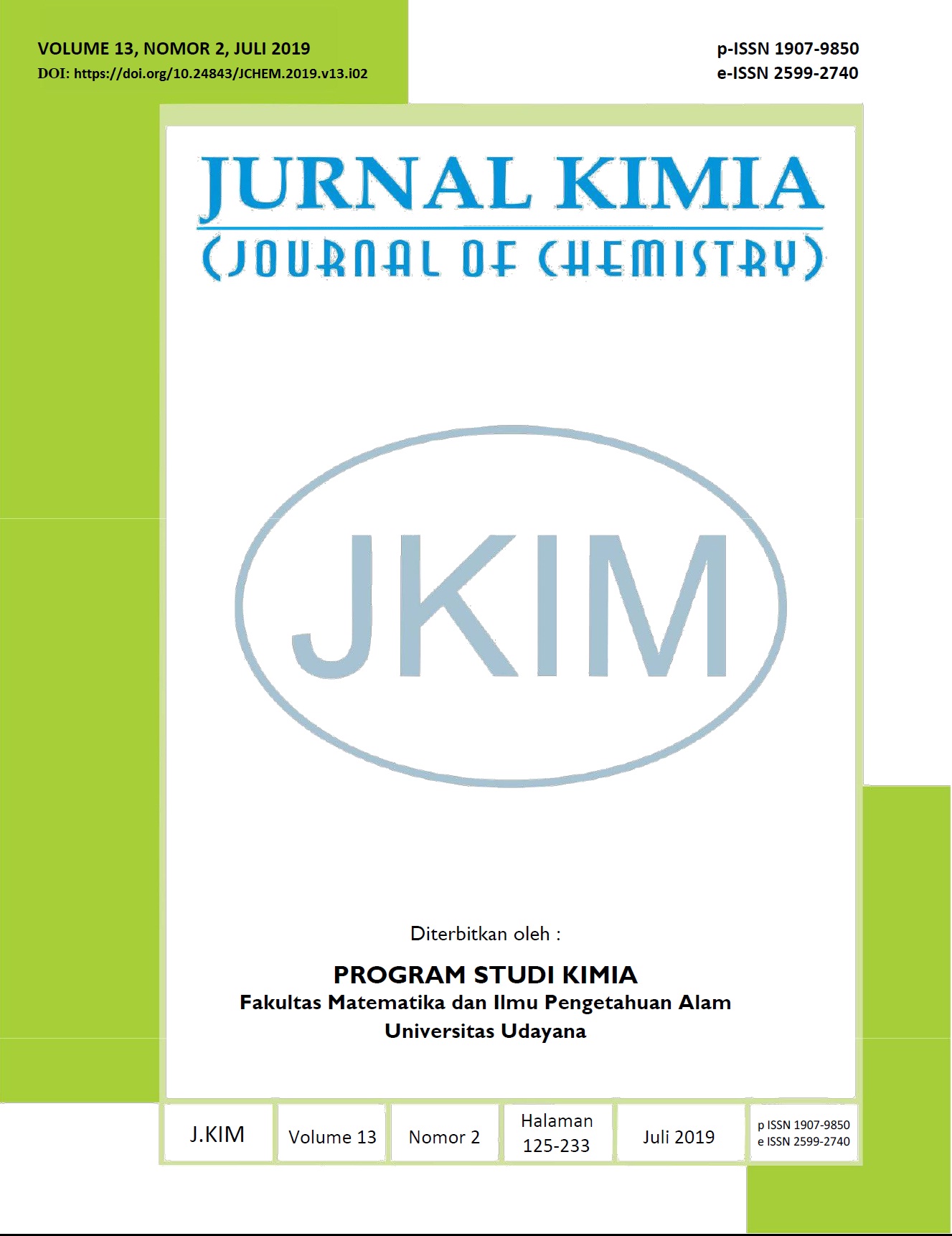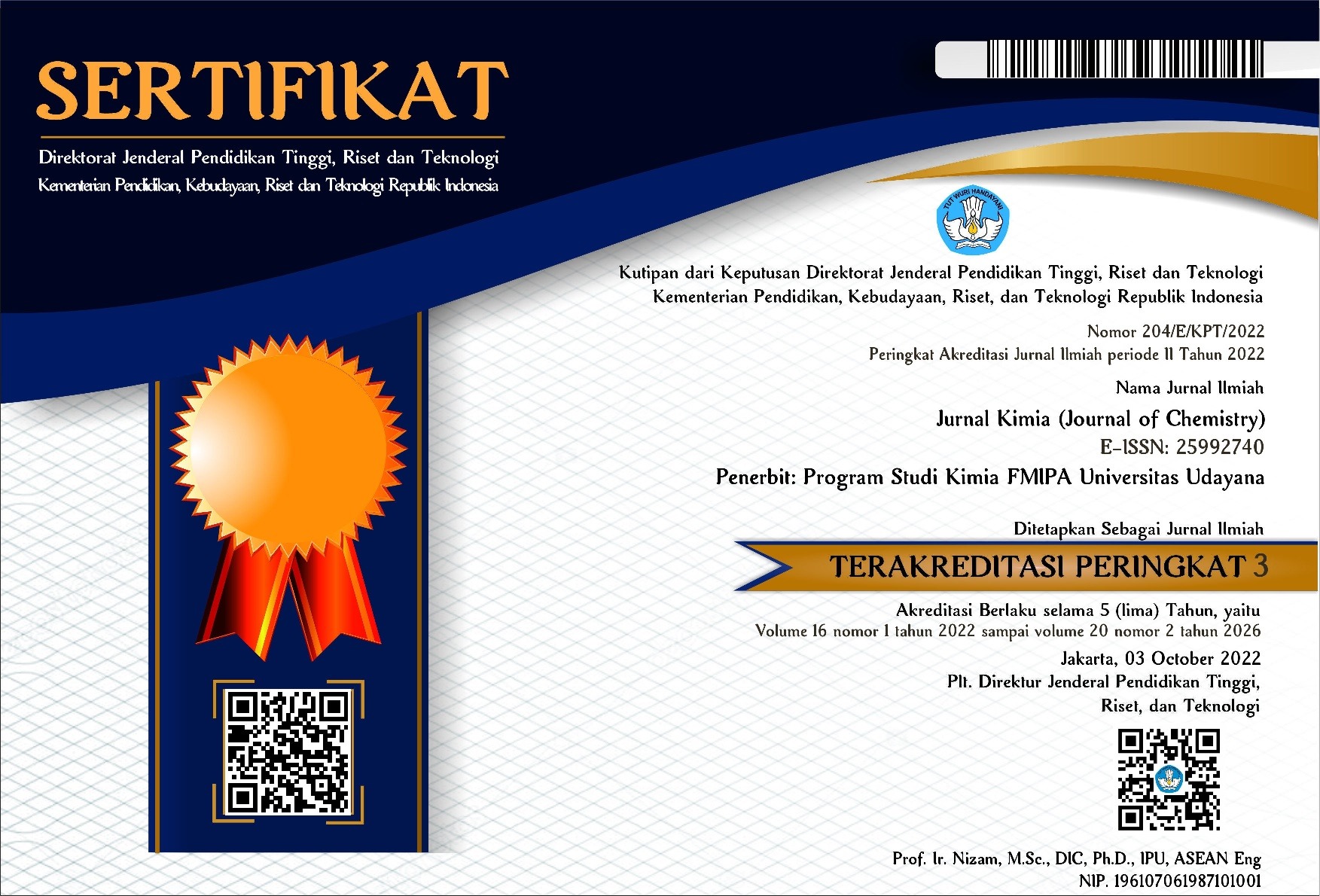MOLECULAR DOCKING AKTIVITAS ANTIKANKER DARI KUERSETIN TERHADAP KANKER PAYUDARA SECARA IN SILICO
Abstract
Breast cancer can be initiated by either overexpression of HER-2 protein which can induce dimerization and autophosphorylation so that it triggers the activation of Focal Adhesion Kinase (FAK) resulting in migration and metastasis in breast cancer cells. Quercetin which has another name 3,5,7,3 ', 4'-pentahydroxyflavon with the molecular formula of (C15H10O7) is a flavonoid compound which is very widely found in nature. The purpose of this study was to determine the mechanism of inhibition of overexpression of HER-2 proteins by quercetin compounds by in silico molecular docking. In silico molecular docking was carried out in several stages namely method validation, optimization of 3D quercetin compound structure, docking between quercetin compounds optimized with HER-2 protein based on bond energy parameters the lower the bond energy the stronger and the more stable the bond is. The results of docking expressed by the binding energy of quercetin compounds with HER-2 protein are -8.24 kcal / mol, while the energy of the native ligand bond with HER-2 protein is -10.45 kcal / mol. The bonding energy shows that quercetin compounds have the potential as breast anticancer because they can modulate the overexpression of HER-2 proteins.
Keywords: quercetin, breast cancer, HER-2, in silico
Downloads

This work is licensed under a Creative Commons Attribution 4.0 International License






